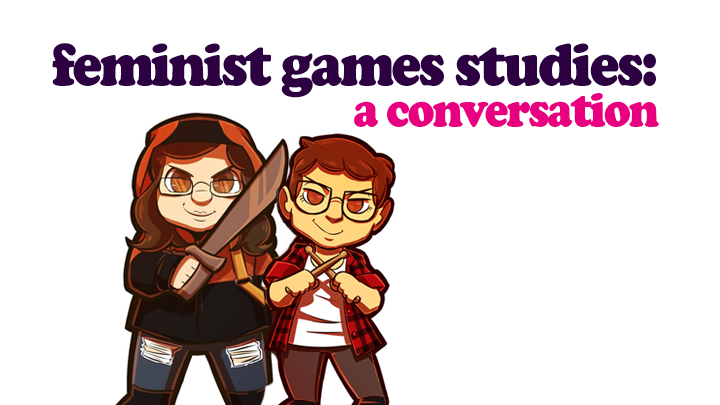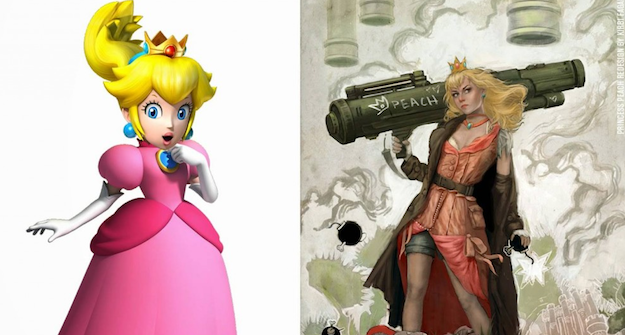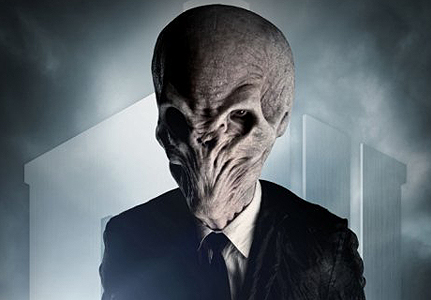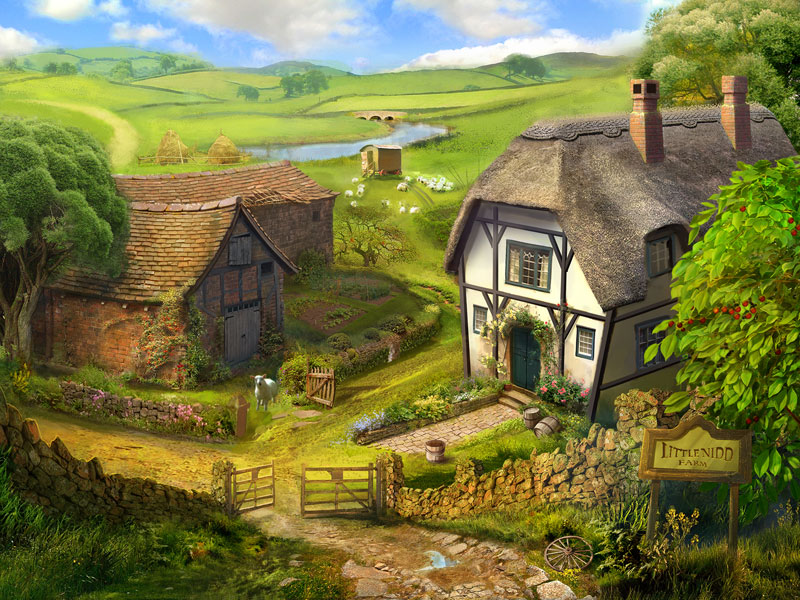When I was a kid, I wanted to be Han Solo, or Princess Leia, or some sort of princess hybrid of the two. They were my heroes. Sometimes I wanted to be a female Robin Hood instead, or Laura Ingalls or a character from a fairy tale, but whatever the version of pretend I was playing, the characters and stories were lifted from books and movies.
My seven-year-old son, though, he wants to be a YouTuber, recording vlogs and Let’s Play videos, and the difference is that his dreams are somewhat more accessible than my decades-old dreams of being a badass space princess with killer braids. Accessible, at least, in that it’s possible for him to make videos. The question is: should he?
I’ve been thinking a lot about this thing I do, and this culture, as I watch my son run around the house with 3DS, recording his “family videos” series. He narrates everything in a particular style, and he has a stock intro and outro he uses as he films mundane happenings, such as a game of chase with his sister, or the cat batting at a spider on the other side of the window. As he wraps up, he always reminds his pretend audience they need to “make sure and hit that like button!” and I smile, because it’s adorable to see him modeling these people who are his heroes, moreso even than characters in games, books, shows, and films. He plays those pretend games, too; he loves Star Wars Rebels and Adventure Time, but like some other kids of the blog, it’s the videos he comes back to, Stampy Cat and DiamondMinecart, and any channel (that he’s allowed) with players who use the worlds he already loves to spin stories of their own.
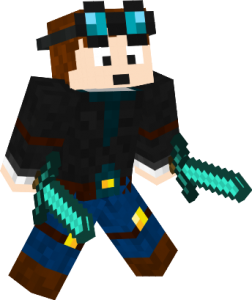 It’s that aspect that makes me want to let him take up the hobby himself, that fact that he loves best the YouTubers who are creating minigames or worlds with narratives. If Minecraft is essentially a set of digital building blocks, then these folks are using those blocks to build story settings; it’s one long game of pretend, with new rules and new happenings all the time, just the way a creative kid likes it. And here’s this kid, who recently discovered he loves poetry, who tells me, with all the fire of earnest juvenile truth burning in his big brown eyes, that he wants to write things that will change the world. Along the way, though, he wants to make some videos.
It’s that aspect that makes me want to let him take up the hobby himself, that fact that he loves best the YouTubers who are creating minigames or worlds with narratives. If Minecraft is essentially a set of digital building blocks, then these folks are using those blocks to build story settings; it’s one long game of pretend, with new rules and new happenings all the time, just the way a creative kid likes it. And here’s this kid, who recently discovered he loves poetry, who tells me, with all the fire of earnest juvenile truth burning in his big brown eyes, that he wants to write things that will change the world. Along the way, though, he wants to make some videos.
My first urge is to think logistics. I could get him the equipment. I’m replacing one of my computers this year, anyway, and he could learn some of what he needs to do, while we help with the rest. And I could monitor channel comments if he started putting things up for release, right? If he wanted to stream, I could be right there, managing chat, right?
But I think about all the creators I know who are trying to put good works into the world, and how they’re treated in my circles. That scares me more than any other idea of the predator, that someone might target my baby for harassment, because there are people out there who do not stop once they’ve sunk their teeth into a bone. This is the world we live in, a world with children who want to watch and participate in a digital culture, but that same culture is full of people who make destroying others into a hobby.
I tell my son no as much as any parent. No, please don’t sit on the sofa when you’re filthy with mud. No, don’t fight with your baby sister over toys. No, you can’t have candy just because we’re in the checkout line and it’s there. But I work hard to say yes as much as I can, as often as I can, because I want him to know that I support his interests, and when I say no, I try to explain why. I want him to understand. But, though I’ve talked to him about plenty of bad things people have done in the past, like the night we stayed up talking about the bombing at the Boston Marathon, like the tragic day when a student was killed here on the Purdue campus, like the day his school was locked down for a shooter in the area, those talks are… I don’t want to call them easy, but comparatively, they are. It’s easy for me to tell him that it’s wrong to hurt people, and to kill them, and to explain that sometimes people do it anyway. He gets “good” and “bad” and “right” and “wrong” because he has a child’s innate sense of justice. Thanks to that sense of justice, it’s easy, too, to talk to him about things like troubling laws here in Indiana and people who target those who are not like them. He knows all sorts of people, so it doesn’t make sense to him (or to me) that any of them should be treated any differently. He aches for things to be fair, and for everyone to have what they need.
I love his fair and fragile heart. I love that we can have these conversations. I never try to block his questions, even when they’re difficult for me. But the idea of professional harassers and Internet assholes, how do I explain that? How do I say well, sometimes people just get a kick out of ruining things for others, and if I do say that, will he come out of that conversation with his fairness and fragility intact? He knows some of this. He’s seen bullying at school, and we’ve talked about that, and he knows he’s not allowed to play online on my gamertag because it can cause problems. He knows he’s never allowed to have voice chat enabled if he plays online at all. He knows he’s not allowed to check messages to his gamertag, but it’s all because of amorphous “bad things” that we haven’t really explained. I wonder what he imagines when we tell him these things. He’s never asked; he trusts us to protect him. But could I protect him from threats and harassment, or from the police showing up at our house, convinced a hostage situation was in progress? Can I even talk to him about these possibilities? I’ll have to, eventually. Do I need to do it now?

I can’t face it yet. I stall, telling him we have to wait, he has to practice with the computer, we has to think about earning equipment. Him earning equipment buys me time while I’m still helping to support his interests. I don’t want to stop him from creating. But he’s so young, and I’d like to keep him that way for just a little bit longer, but I worry about him, and other kids like him. I’m sure he’s not the only one with YouTube channel dreams. I know there are some young creators out there already (with a lot of parental support and participation), and others who are teens, and stacked against them are legions of people more than willing to share their opinions of things in the most sadistic ways possible. And those people are a problem, not just because, well, they are, but because of the potential impact on these young creators. It takes a while for that idea of justice to leave a child; for years, the most children are convinced that bad people get punished, and that wrong things will be righted. What happens, then, when there are people piling on a video, making racist jokes, or rape jokes, or telling a creator to just commit suicide already? Because we all know these things happen, and often, and simply turning comments off isn’t always enough to stave off the harassment. The determined find other ways, and there’s no way to fix it. Twitter doesn’t fix it. YouTube doesn’t fix it. The laws aren’t there to fix it in many cases. Many people can’t even agree on what is and isn’t harassment. Such is the gulf between those who’ve suffered it, those who haven’t, and those who perpetrate harassment, and until that changes, I’m not sure there is any fixing it. Do the children watch these things go un-fixed, and think: well, maybe it’s okay? If no one’s doing anything, is it fine to call people names online? To make threats in digital spaces because it’s not really real?
Is this then how we’ve come to a culture that, by and large, seems to think online harassment just isn’t that big a deal? It’s so normalized. Everyone gets harassed, so how can it be wrong? No matter that it drives some people away, crushing potential creators, or worse. There’s always worse. The implications then aren’t just a matter of what might happen with my son, or our family, but much bigger than that: a whole generation is growing through this, and into it, via social media, dealing with the pressure and expectation to take private thought public and the consequences of doing so, or the problems inherent with interacting with strangers in digital spaces.
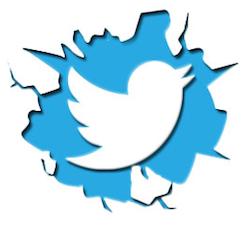 Many of the conversations I’ve seen on fighting the problems of digital harassment don’t much touch on children (though we talk about students), unless it’s a young person perpetrating the harassment (and worse), though sometimes harassment is hand-waved away with the idea that it’s all kids. It’s not all kids out there trolling, though; there are plenty of adults participating, and even leading, hate mobs in digital spaces. Just recently, notorious (and fully adult) troll Chuck C. Johnson was finally banned from Twitter, but only after long months of reported harassment, and months of very public doxxing and stalking behaviors. Even with that, it took a long, rolling outcry, and for his recent target Deray Mckesson to call for action on CNN.
Many of the conversations I’ve seen on fighting the problems of digital harassment don’t much touch on children (though we talk about students), unless it’s a young person perpetrating the harassment (and worse), though sometimes harassment is hand-waved away with the idea that it’s all kids. It’s not all kids out there trolling, though; there are plenty of adults participating, and even leading, hate mobs in digital spaces. Just recently, notorious (and fully adult) troll Chuck C. Johnson was finally banned from Twitter, but only after long months of reported harassment, and months of very public doxxing and stalking behaviors. Even with that, it took a long, rolling outcry, and for his recent target Deray Mckesson to call for action on CNN.
Why did it take so long? Twitter’s not anyone’s right; it’s a business, a service, with particular rules. But we’re back to that idea that there are too many definitions of harassment, and too few measures for dealing with it, and not as much discussion as there should be about those who are following behind us, the writers, social media mavens, and YouTubers of the future, especially when that future is growing rapidly and aching to participate in a world that looks like so much fun from the safety of an iPad in a comfortable living room.
Maybe it’s hard to think about the future, and our children, because so many of us are in the thick of it ourselves; people fighting for change in social media are usually fighting because they’ve been targeted, and it’s tiring. Many people, especially women, have written lately about the wearying effect of facing daily barrages of harassment, and it’s a fight with no end in sight. In the face of that, where do we find the energy to think about tomorrow’s solutions, and can we even afford to think of tomorrow’s solutions when we’ve got no solutions today?
My son is lucky. He has the luxury of parents who understand the cultures he wants to join, and we will help him develop good strategies for navigating digital spaces. But will all his friends have that luxury? Once they’re better readers, and they graduate from simply watching videos to reading comments and participating in communities, what lessons will they learn at the feet of the digital hate mob?
I don’t have a solution myself. I wish I did. For now I stall: we’ll learn about that tomorrow. We’ll talk about making Minecraft videos later. We’ll talk about equipment, kiddo. And as I stall, I keep calling for changing, hoping someone is listening.

